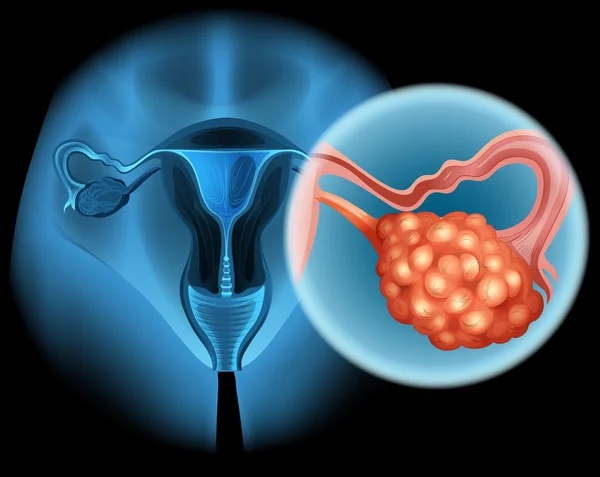Ovarian cancer, one of the gynecological diseases, is a malignant tumor that grows in the ovary, and fallopian tube cancer is a malignant tumor that develops in the fallopian tubes. There are a few possible symptoms in the early stages of cancer. Hence, due to the lack of early symptoms, there’s a delay in diagnosis, making the therapeutic effect low with acquiring resistance to anticancer drugs. Unfortunately, this also means there is a high recurrence rate and high mortality rate.
The advanced ovarian cancer symptoms include lumps in the lower abdomen and loss of appetite. So, in that case, the person can get tested at the hospital to see if it could be ovarian cancer or fallopian tube cancer. Also, as cancer grows more, it may cause frequent urination, constipation, and swelling of the legs by compressed bladder and rectum. When the ascites are built up, the stomach may also protrude significantly.

Nowadays, Fucoidan is attracting attention in the treatment if the treatment is limited due to the delay in diagnosis. Fucoidan is a sulfated polysaccharide contained in brown algae such as Fucus vesiculosusand is known to have anticancer effects against various cancers such as breast cancer and colon cancer. In particular, Fucoidan derived from Fucus vesiculosushas been reported to have some growth-inhibiting impact on ovarian cancer. Yet, the details of its mechanism of action have not been clarified.
Therefore, in this blog, I would like to share the study of the effect of Fucoidan on ovarian cancer from various angles. Hence, this blog describes the anticancer effect of Fucoidan on new ovarian cancer cells going through the study “Fucoidan derived from Fucus vesiculosus inhibits the development of human ovarian cancer via the disturbance of calcium homeostasis, endoplasmic reticulum stress, and angiogenesis” by Hyocheol Bae et al.
First, to investigate the effect of Fucoidan on the proliferation of ovarian cancer cells, Fucoidan was added to human ovarian cancer cell lines ES-2 and OV-90 to examine the survival rate. This study showed that the survival rates of ES-2 and OV-90 decreased in a concentration-dependent manner of Fucoidan, and Fucoidan suppressed the growth of ovarian cancer cells. As a result, Fucoidan has been proven in this study to suppress the growth of ovarian cancer cells.
Next, to investigate the mechanism by which Fucoidan suppresses the development of ovarian cancer cells, they had used a sensor protein that senses mitochondrial calcium ion levels and endoplasmic reticulum (ER) stress for ES-2 and OV-90 treated with Fucoidan. When measured, a concentration-dependent increase due to Fucoidan was observed. Accumulation of calcium ions in mitochondria and ER stress was reported to cause cancer cell death. From the test results, Fucoidan acts on ovarian cancer cells to induce ER stress and accumulation of calcium in mitochondria. It has been proposed that causing it leads to cell death of ovarian cancer cells. Furthermore, they investigated the anticancer effect of Fucoidan on ovarian cancer using zebrafish, which has a gene similar to that of humans.
After administration of Fucoidan to zebrafish, ES-2 and OV-90 were transplanted, and tumor formation was observed. As a result, the tumor size of both ovarian cancer cells decreased in a concentration-dependent manner (Fig. 1A, B). ). Additionally, the expression level of mRNA of intravascular growth factor (VEGF) was measured to investigate the angiogenesis-suppressing effect of Fucoidan in zebrafish transplanted with ovarian cancer cells. VEGFa is a factor that promotes angiogenesis of cancer cells. VEGFc is also a factor that causes lymphangiogenesis. And both are factors that promote metastasis of cancer cells. Fucoidan reduced mRNA expression levels of VEGFa and VEGFc, which suggests a fucoidan angiogenesis-suppressing effect (Fig. 2A, B). In conclusion, Fucoidan has shown anticancer effects against ovarian cancer, offering new possibilities for ovarian cancer treatment.

Fig. 1) Tumor size of ovarian cancer in fucoidan-administered zebrafish (A: ES-2, B: OV-90)

Fig. 2) Fucoidan-administered zebrafish VEGF mRNA expression level (A: VEGFa B: VEGFc)
